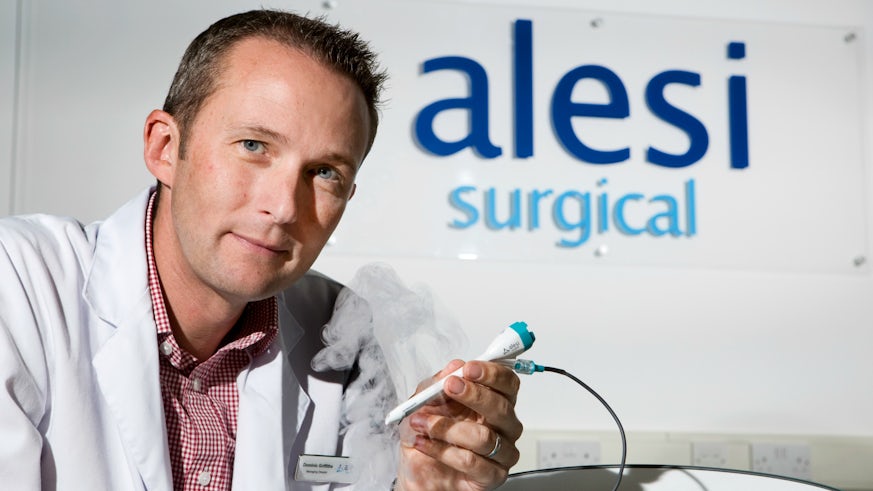FDA approval for University spin-out
15 February 2017

A Cardiff University life sciences spin-out company has set its sights on the lucrative US medical device market after successfully securing FDA (Food and Drug Administration) approval for its Ultravision™ device.
Alesi Surgical, based at the Cardiff Medicentre, becomes a member of a select group of only 26 medical device companies worldwide in the last 12 months that have successfully navigated the FDA De Novo regulatory review process.
“We are thrilled to have gained FDA approval for our Ultravision™ device that will now allow us to target the US market,” said Dr Dominic Griffiths, Managing Director of Alesi Surgical.
“Commercially the US represents approximately fifty per cent of the global medical device market and so it is difficult to overstate the importance of this for the company.”
A world first
Invented by Neil Warren a founder of WIMAT in Cardiff, the Ultravision™ device is a world first that clears the vapour and particulate matter generated by modern surgical cutting instruments during abdominal keyhole (laparoscopic) surgery through the use of electrostatic technology. The technology dramatically and effortlessly improves visibility for surgeons that is otherwise rapidly obscured by this “plume” or “surgical smoke”.
“Absolutely awful view whilst it was turned off. Miraculous difference when it was switched on,” said Mr Andrew Miles, Consultant Colorectal Surgeon, Royal Hampshire County Hospital, Winchester.
The innovative device, which produces a small, low-energy electrostatic charge similar to the principal of static electricity, is able to greatly improve visibility for surgeons by actively getting rid of surgical ‘smoke’.
The technology also benefits the patient as it minimises the amount of cold, dry carbon dioxide gas – used to create a working space inside the abdomen – which a patient is exposed to during the keyhole procedure.
Post-surgical pain
It is not uncommon for abdominal keyhole procedures to require several hundred litres of this gas to clear the visual field throughout the procedure. Excessive use of carbon dioxide contributes to post-surgical pain and prolongs recovery time for the patient.
Despite concerns over the potential consequences of long-term exposure, the smoke produced during surgery is often released into the operating room where it can be breathed in by hospital operating room staff. However, the use of Ultravision prevents the release of the smoke into the operating room during surgery, helping to address this health and safety hazard for healthcare staff.
Dr Griffith said: “Ultravision™ helps optimize the efficiency of laparoscopic surgery whilst at the same time providing additional benefits to patients and staff.
"Gaining FDA approval for Ultravision™ allows us to continue the progress and development in the US market..."
"This is the next step after launching our new Ultravision Trocar product in Europe which integrates the benefits of Ultravision into an access device for abdominal key-hole surgery."
"The combination of these two major achievements places us in a strong position to enter 2017 with confidence.”
Alesi Surgical launched in 2009 as a spin out from the internationally recognised Welsh Institute of Minimally Invasive Surgery, part of Cardiff University. To date, Alesi has secured £6.1m worth of venture capital funding, principally from its lead investors IP Group PLC and Finance Wales Limited.
Share this story
Find out about our talks, workshops and exhibitions

